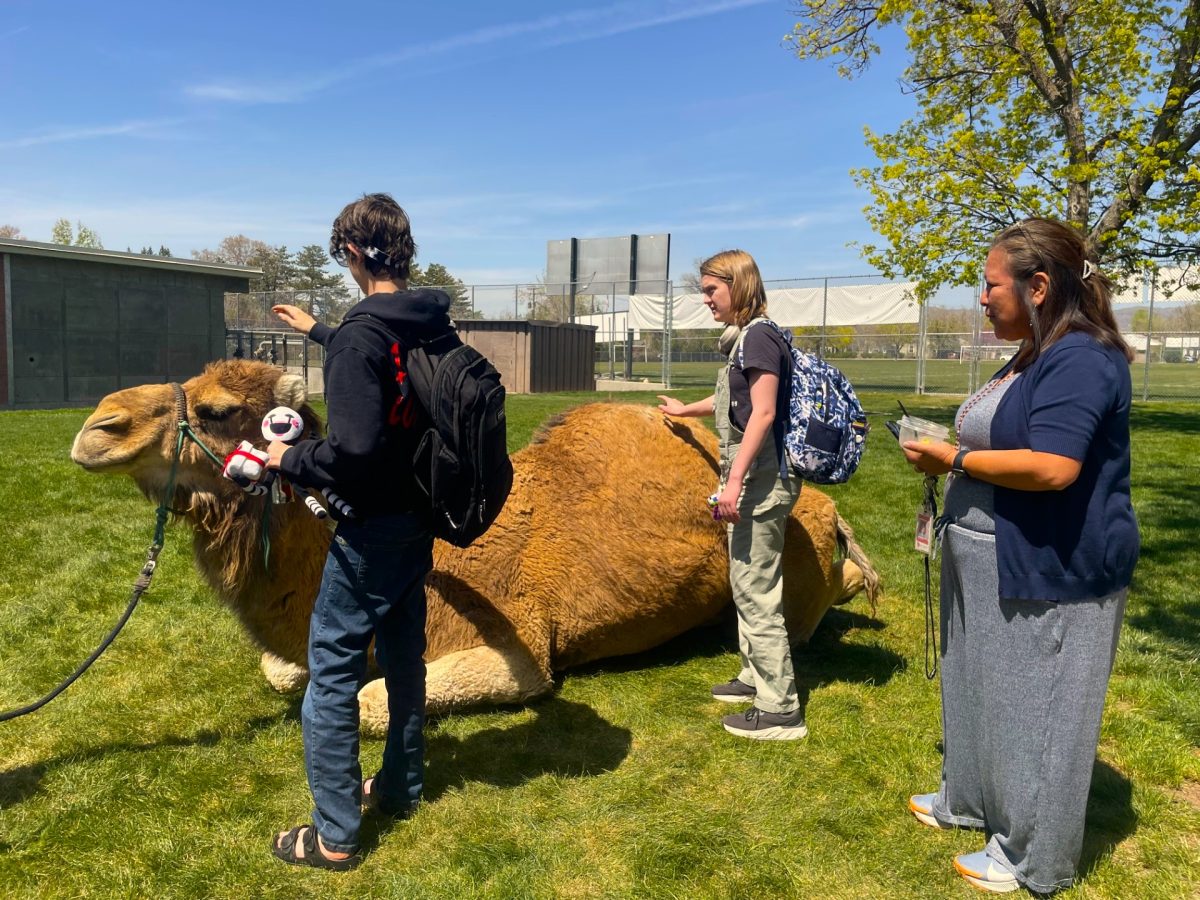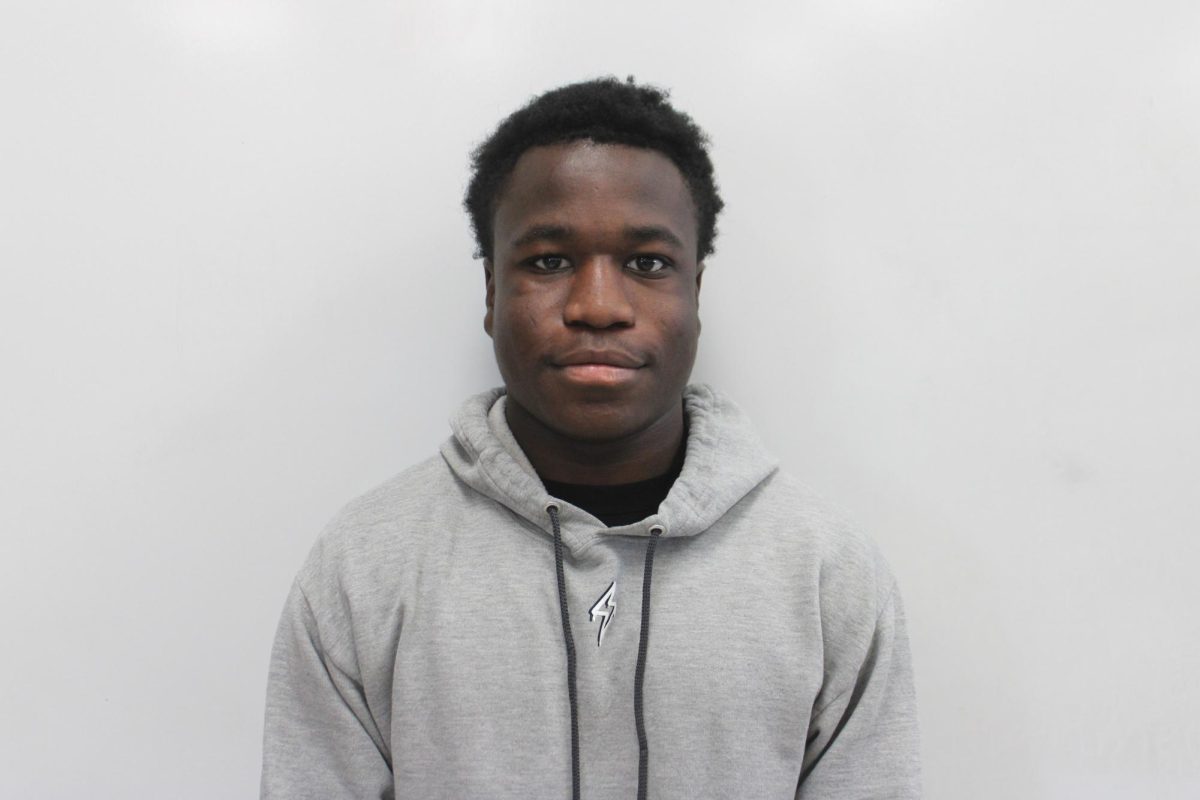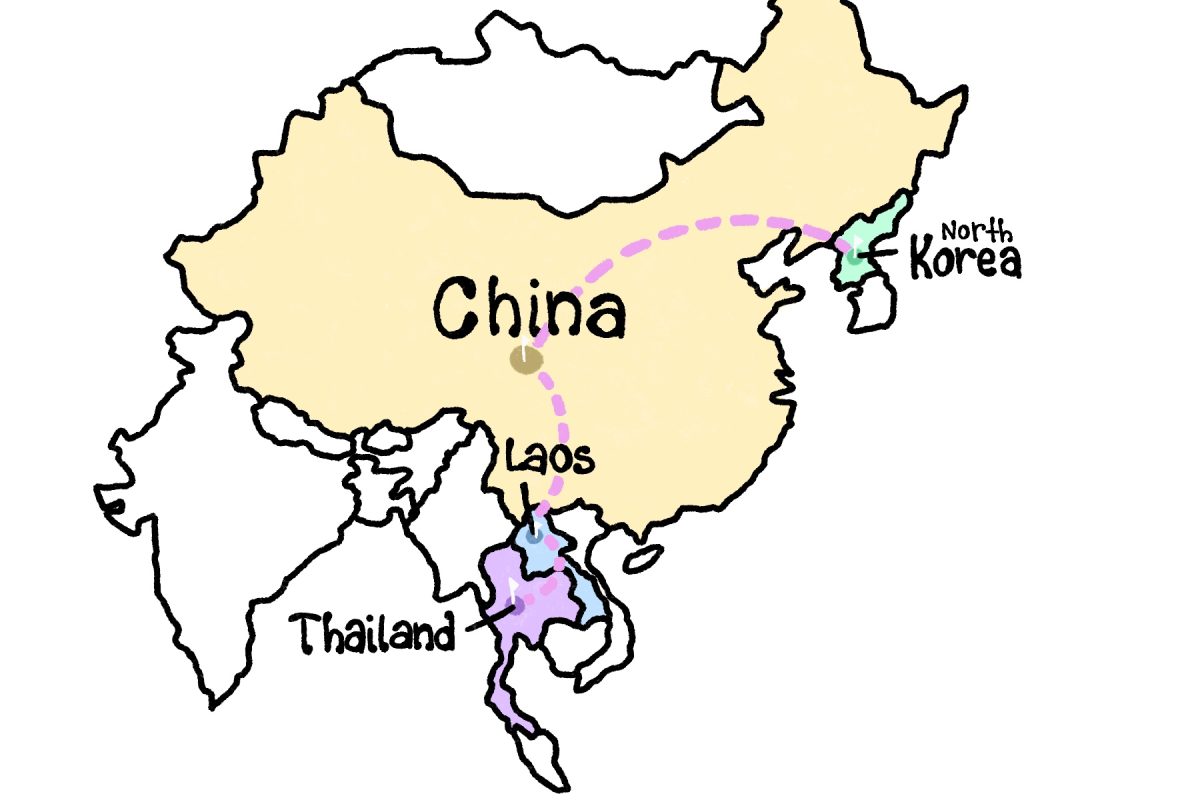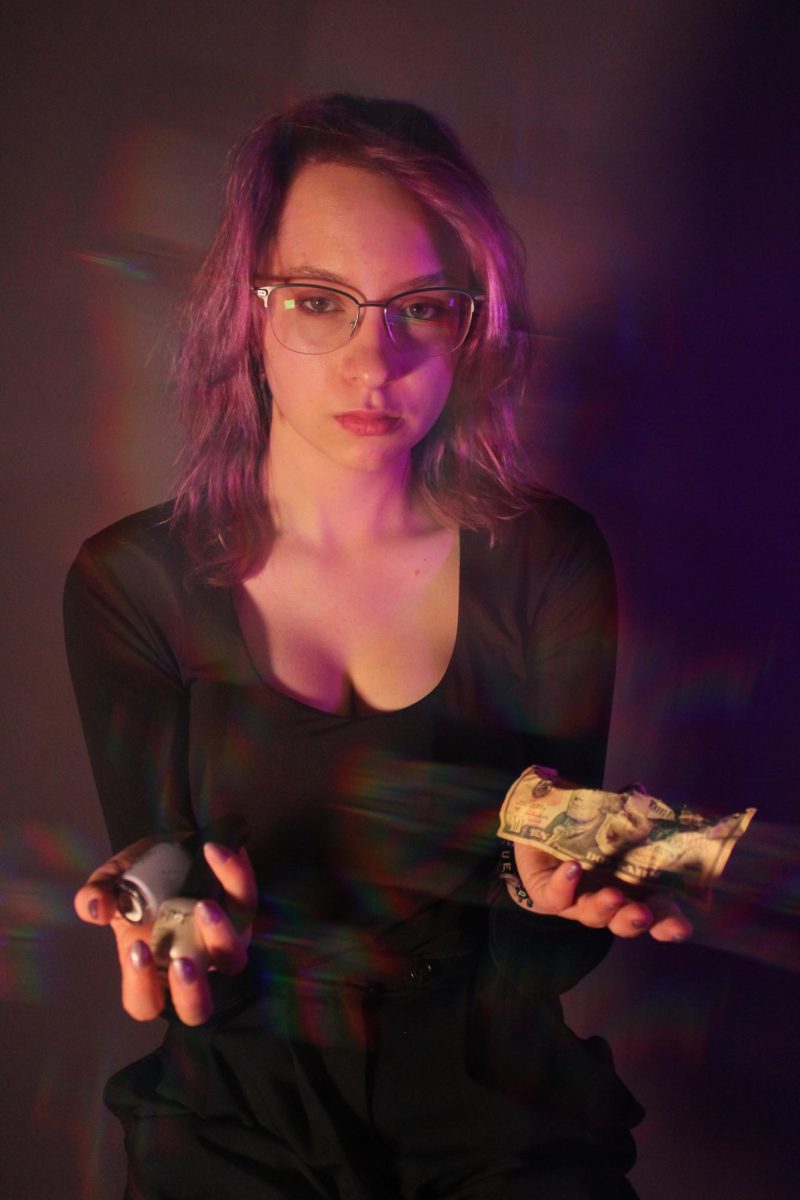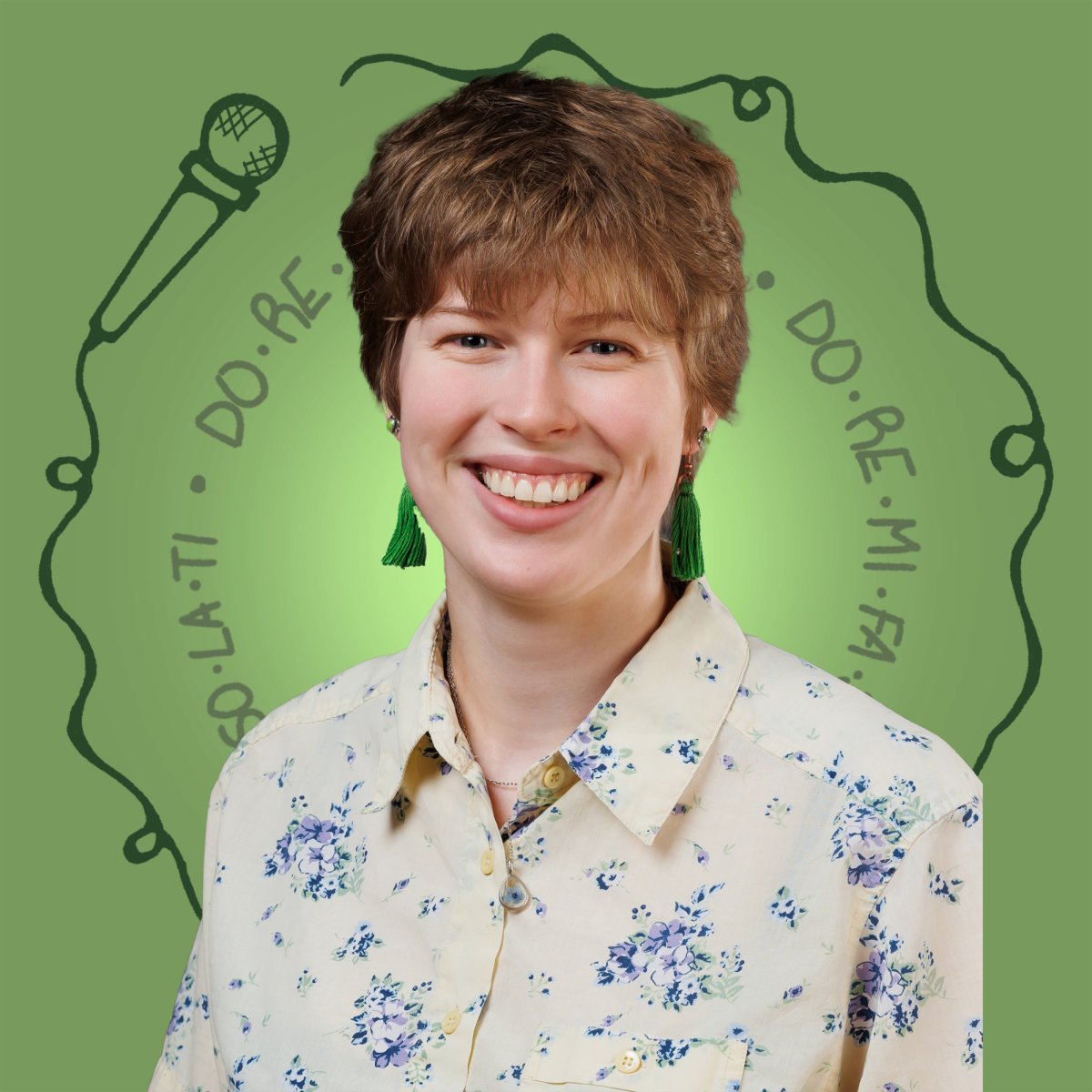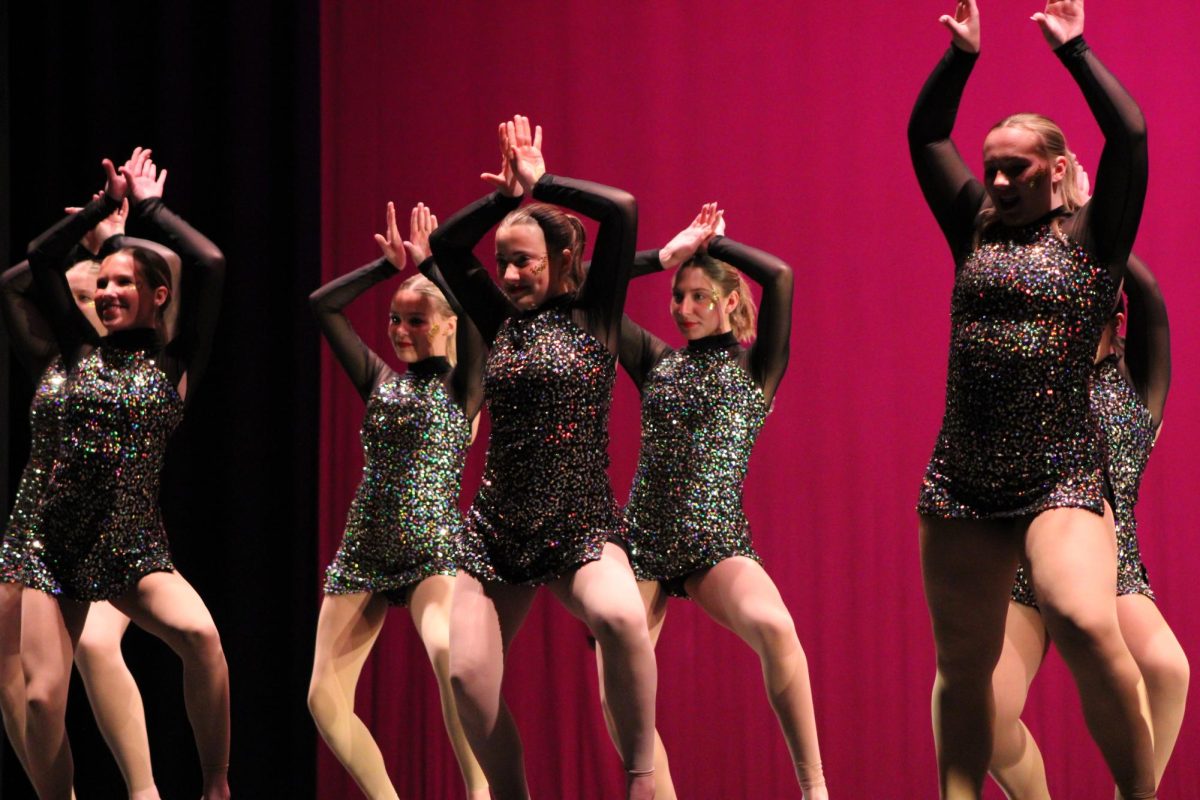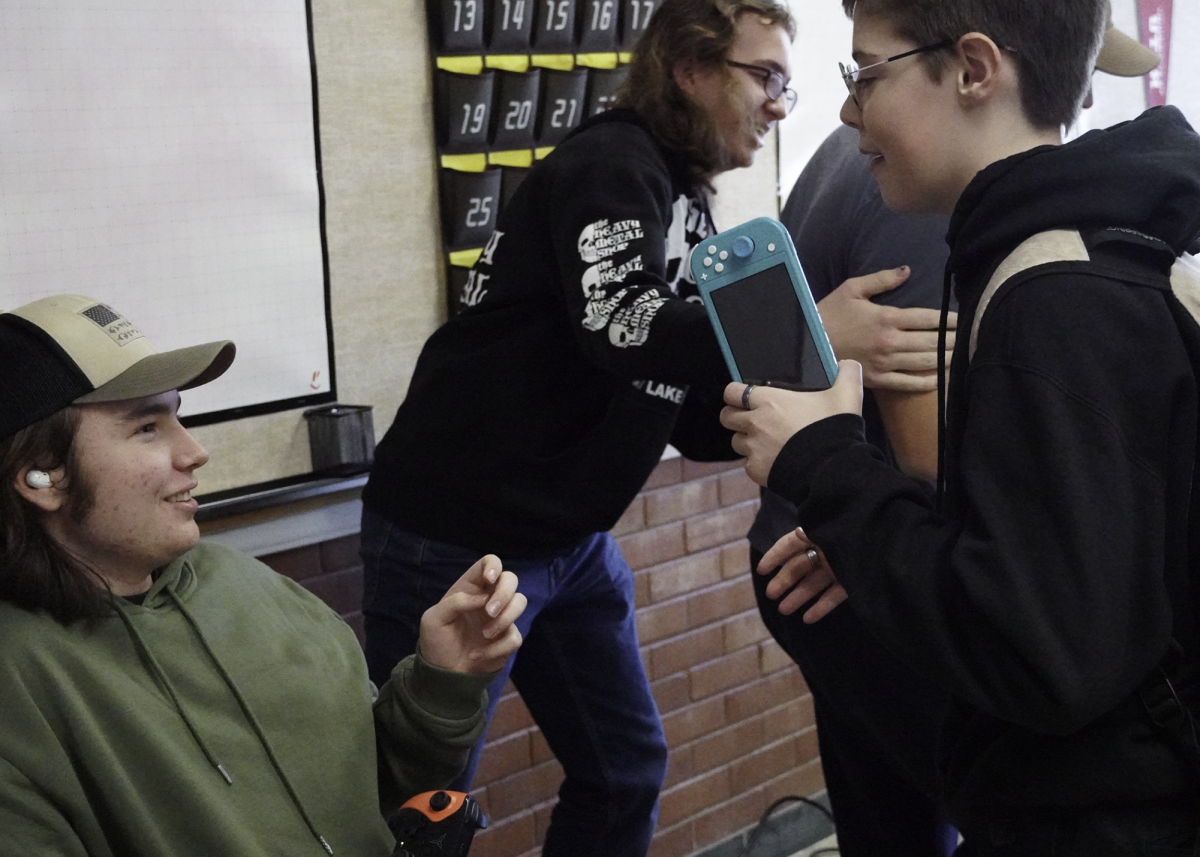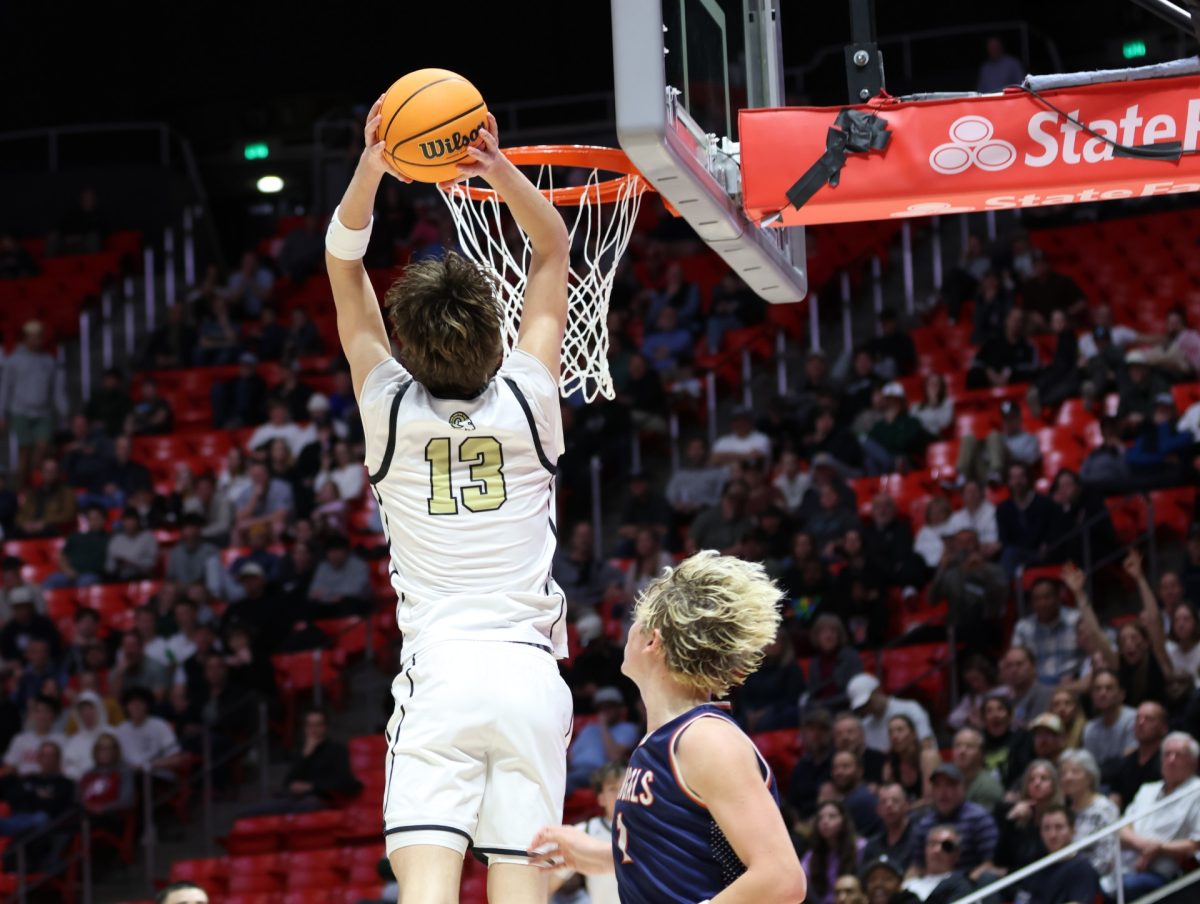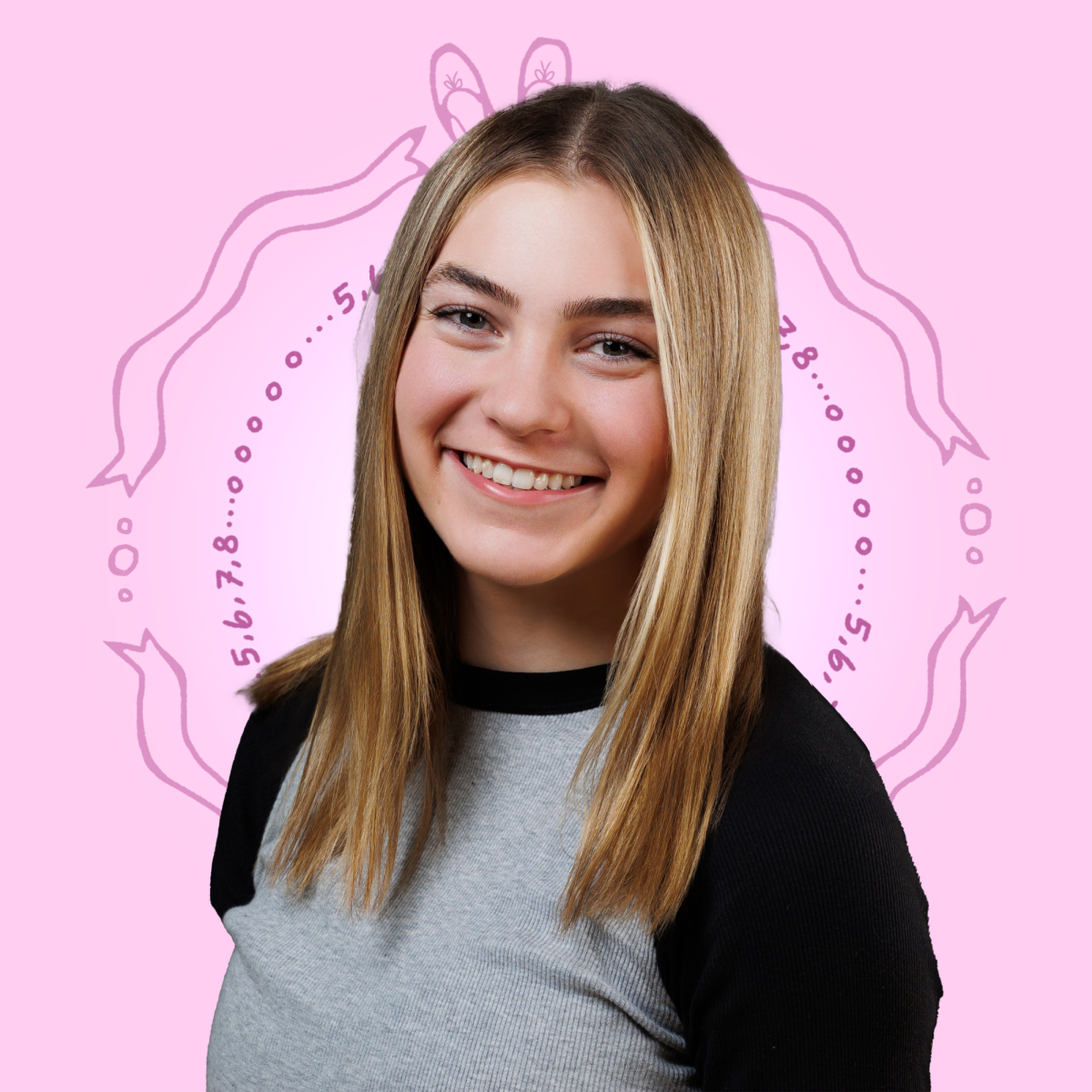Alexandra Leavitt
April 30, 2021
Art and science.
To most people, these subjects appear to be on two opposite ends of the spectrum.
Highland Sterling Scholar in science Alex Leavitt, however, is deeply passionate about both subjects and is constantly finding new ways to integrate the two in everything she does.
“When I was younger, I actually thought I would be an artist when I grew up,” Leavitt said. “I try to incorporate all my interests.”
One example is when Leavitt wrote a song for MESA (Math Engineering Science Achievement) about water pollution, the lyrics singing, “A bottle, abandoned, lies on the beach, a plastic bag left in the street…swirling, whirling, churning waters, stirring up a plastic soup.”
Leavitt is a visual artist, but also plays the piano and the violin. Within science, she has built skills and found an appreciation for all subjects from physics to biology, but harbors a particular passion for engineering, as it is where her two interests intersect and her creativity can shine.
“I love science and I love working on problems but I also love the creative aspect that comes with engineering,” Leavitt said.
Leavitt’s interest in science is something which her mother, Christina Leavitt, noticed early on. One moment in particular when she saw Alex’s potential was during fourth grade at her school science fair, where she won first place for a project she completed with her sister investigating the best egg replacer when baking.
“That [winning the science fair] just sparked this light in her eye of ‘Ooh science, this is interesting and I can do this,’” Christina Leavitt said. “I’ve seen that interest grow with each project.”
Although Leavitt had known for a long time that she was good at math and science, she says it was joining MESA at Highland, where she has been club president for the past two years, that really increased her involvement in science outside of school and helped her narrow down what she wanted to do.
Through her involvement in MESA, Leavitt discovered her love for engineering. She also stacked up an impressive list of awards over her four years in the club, including MESA’s Student of the Year during her freshman year, second place for the team at the Arduino programming competition, and several first-place individual awards in the Eco Challenge competitions, placing second and third in the categories of t-shirt design and visual arts.
One of her favorite projects she has worked on through MESA is a model she designed last year.
“I made a model that would create biogas through composts, so that on a small scale people could power their homes with compost to help reduce fossil fuel usage and encourage local gardens,” Leavitt said.
These types of projects, which require not just scientific understanding but also creativity in design to solve real-world problems, are what draw Leavitt to the subject of science.
“I like to be able to understand what’s happening around us, and I just think it’s really interesting to be able to come up with new ideas, figure out why things work, and be able to build new things,” Leavitt said.
Bonnie Bourgeous, AP biology teacher at Highland and advisor for MESA, says Leavitt exemplifies the qualities of a good scientist, and her leadership has proven a valuable asset to the club.
“Alex just took off and did amazing things in the Eco Challenge…she is self-motivated and has been enthusiastic about any opportunity or competition I have asked her to participate in,” Bourgeous said. “Her quiet leadership has led the MESA club to two state championships…her curiosity, inquisitive mind, hard work and perseverance make her a natural scientist.”
Bourgeous says Leavitt has also been able to keep students engaged in MESA in the new remote learning environment, where they continue to hold meetings every 2nd and 4th Monday of the month over Zoom.
Leavitt says she greatly appreciates the guidance and encouragement which Bourgeous, along with all the other science teachers she has had over the years, have given her in her pursuit of science.
“They [past science teachers] really helped me decide that I could do science and this was a subject that was fun and enjoyable, and something I could do as a career,” Leavitt said.
Outside of science, Leavitt devotes much of her time to creating art, playing the violin, and doing community service.
“I’ve found that if I put in a lot of effort in practicing and learning music, I’m really proud of what I can produce,” Leavitt said.
Much of her volunteering is centered around tutoring ESL and refugee students, which she began doing in her sophomore year through the program Real Life.
No matter what she’s doing, Christina Leavitt says her daughter gives it her all.
“I’ve watched her do a lot of projects for all of her different classes and it seems like no matter what the challenge is, she is always willing to jump in and try it, and keep working at it until she can accomplish it,” Christina Leavitt said.
As for the future, Leavitt plans to study computer engineering at the University of Utah. She hopes to continue advancing in her hobbies outside of science as well.
“I want to keep working on my art and I want to join a community orchestra so I can still enjoy stuff like that even if I’m not actively studying it,” Leavitt said. “I also want to keep volunteering.”


